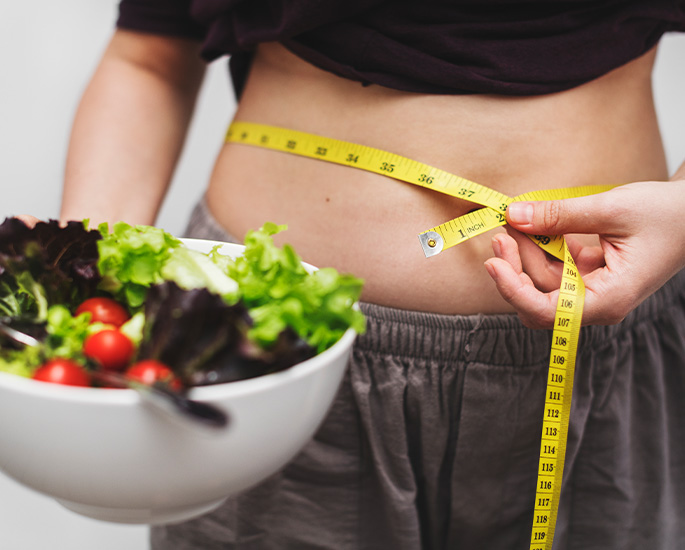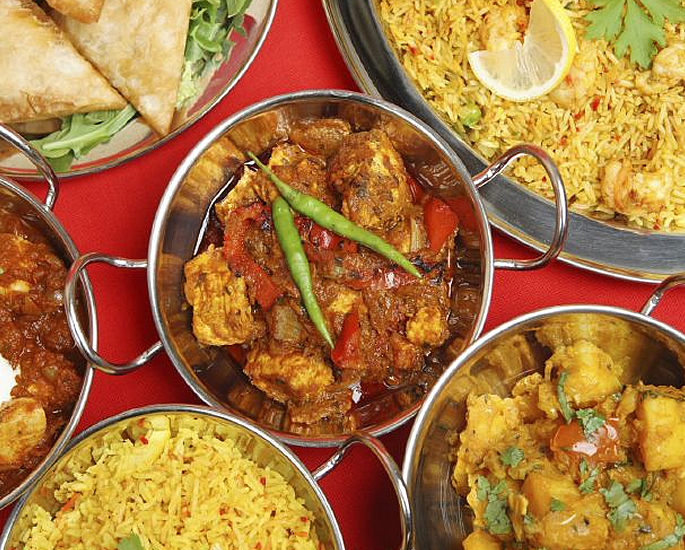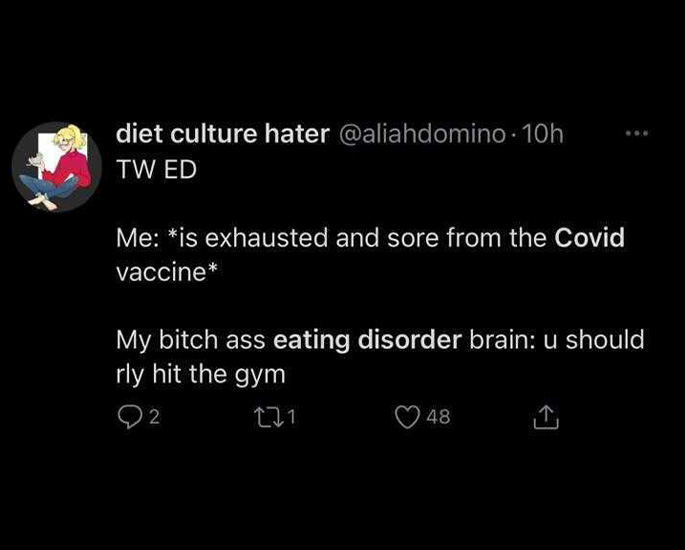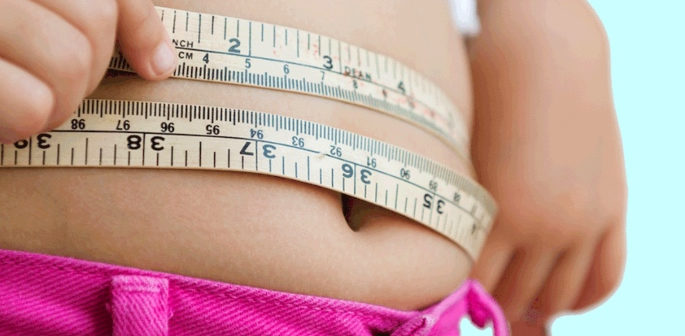"No foods are good and no foods are bad."
The lockdown caused by Covid-19 has led to lockdown weight gain. With panic spread across the world, an old yet familiar problem still makes an appearance.
Lockdown weight is the focus of many in the diet and fitness industry.
The overall mental and physical pressures of Covid-19 have left many feeling powerless. Amongst this, lockdown weight gain is a new trend.
Indeed, exercise and a balanced diet are important for wellbeing. This meditative process relieves feelings of depression and anxiety.
However, the prevalence of lockdown weight gain on social media rekindles past food fears for people with eating disorders.
When searching the word ‘lockdown’ on Google, the first five hits are:
- Weight
- Weight loss
- Lose weight
- Workout
This raises the question, why amongst the madness of Covid-19 is lockdown weight gain a concern?
Healthy Eating and Mainstream Media

Lockdown has created a suffocating atmosphere. Comfort food and alcohol may help relieve cabin fever.
The British Liver Trust encourages people to turn to other coping strategies.
Alcohol sales increased by 20% in the first month of lockdown.
Coping strategies help people process and adapt to new routines. Increased stress due to the lack of normality caused by Covid-19 may require the employment of relaxation strategies. For many, unhealthy eating and drinking habits act as stress relievers.
However, online publications may not have been sympathetic to the resultant lockdown weight gain.
Many media outlets have included ‘lockdown weight’ and ‘love handles’ in their titles:
- “Lose your lockdown love handles in 14 days (June 2020: Mirror)”
- “How to lose lockdown weight (June 2020: Express)”
Influencers have contributed to the idea that lockdown weight gain must be tackled. This may lead to people at home feeling increased pressure to conform to beauty standards.
Celebrity-approved diets and exercise routines add stress for people suffering from lockdown weight gain at home.
The Kardashian clan continued endorsing workout shakes.
With little else to do and the lockdown weight gain piling, compassion is needed.
However, Covid-19 is more dangerous for those who suffer from obesity. Many people are suffering from lockdown weight gain, so expert advice is useful.
Is There a Correct Way To Stay Fit and Healthy?

Ravinder Sagoo is a registered dietitian and is part of the Nottingham University Hospital Trust.
She describes healthy eating and physical activity as being the core of what she does.
Ms Sagoo spoke on the impact of Covid-19 on everyday routines and fitness levels:
“Those who have been furloughed are now home, and for their physical activity, the impact is huge.
“With the additional worries of education, or finances, people tend to reach out to ‘comfort eating’, and those foods tend to be high in fat.”
When discussing the extreme pressure mainstream media puts on dieting, Ravinder said:
“No foods are good, and no foods are bad.”
A balanced diet is essential. Junk food in excess is problematic:
“For those who have issues with food, it is a dangerous time.”
From lockdown weight gain to being overly restrictive, it can be challenging to find a balance.
“Healthy eating doesn’t mean you need to eliminate foods you love.
“It is about incorporating them more sustainably.”
Comfort food is on hand, and lockdown weight gain can fulfil boredom. It is easy to turn to food instead of listening to the human body. Ms Sagoo continues:
“When you’re hungry, I recommend having a little bit of water, and you’ll find you’re often more thirsty than hungry.”
With lockdown weight gain caused by unhealthy eating habits, nutrients are essential.
The incorporation of vitamin D is needed in diets.
South Asians can lack the vital vitamin. Combined with restrictive South Asian diets, there is a risk to long-term health.
The Desi Diet

Despite the Desi diet including various sabzi – vegetables – such as carrots and cauliflower, obesity and diabetes is a concern.
As such, many people accuse South Asian foods of being high in fat and sugar, from buttery saag – spinach – to candied ladoos.
Obedience is expected from Desi children even when food habits are involved.
The attitudes of Desi parents can cause food anxieties to rise amongst their children.
South Asians don’t always have the option of saying:
“I don’t want to eat saag anymore; you use too much butter.”
Traditionally, Desi children must eat what they are given.
Lockdown has caused many students to move back home from university, South Asians included.
Desi parents have a high level of involvement in their children’s lives. Their children (adults included) may have less control over lifestyle choices, like diet and exercise.
With the inability to say no, South Asian children may feel powerless.
Covid-19 is riskier for those who are obese, and lockdown weight gain may rise for Desi people with the consumption of unhealthy food.
This is particularly concerning considering Desi people are already more at risk of mortality due to Covid-19.
Social Media and Memes

Social media is, arguably, the most potent form of communication.
The use of dark humour has made these unhealthy feelings related to lockdown weight gain a trend.
Some may make light of the messaging online and find a sense of comedic relief to a serious subject.
Others may feel that social media is doing more harm than good.
People struggling with lockdown weight gain may feel that their negative body images are reinforced online.
UK Eating Disorder Facts and Figures
- Around 1.25 million people in the UK are suspected to have an eating disorder.
- Female relatives of anorexia sufferers are 11.4 times more likely to suffer from anorexia.
- The average age of onset for anorexia nervosa is 16-17 years old.
- 25% of those affected by an eating disorder are male.
- Eating disorders are most common in individuals between the ages of 16 and 40 years old.
Field of Grace
Field of Grace is a UK based eating disorder charity created to provide support and resources to those struggling with eating disorders.
It came into existence following the deaths of Cheryl Wallis and Lorraine Field, friends of founder of Nicola Leach.
Nicola spoke on the impact social media has on people’s self-esteem:
“It is very diet cultured at the moment. Getting fat over Covid jokes are everywhere.
“People who are struggling do not need to see these memes and promotions to lose weight.
“With low body image strengthened through social media, people are suffering from their eating habits.
“All they know is how to control food, whether that’s undereating, overeating, restricting.”
Nicola described Covid-19 as “beyond terrifying” for those who in recovery from an eating disorder.
Nicola was diagnosed with anorexia at the age of 18:
“I was in the gym for hours, and I was praised for it.
“To be worthwhile in society, you have to look a certain way, and not only is that triggering to people who want to recover, but it can also cause eating disorder problems.”
Field of Grace runs online zoom sessions, reaching people across the UK and Europe.
Nicola explained the messaging conveyed to those who have experienced lockdown weight gain:
“It is constantly being said to us you are not good enough.
“You are only good enough if you look good, and that’s not true.”
It is important to live a healthy lifestyle. Diet and exercise combine to benefit the mind as well as the body.
Self-worth goes beyond weight especially when mental health is a concern during the pandemic.
Exercise and The Fitness Industry

With 57,800,000 hits, “lockdown workout” is a high priority for those with extra pounds from lockdown weight gain.
“Lockdown diet” and “clean eating” are also favourites.
Throughout the pandemic, fitness influencers encouraged viewers to get involved in viral fitness challenges.
Algorithms on social media allowed this content to stay trending for months, garnering more followers.
#workoutchallenge received 1.8 billion views on Tik Tok.
Coronavirus has allowed the fitness community on YouTube to thrive. Influencers received a significant increase in views and followers.
When fitness mogul Chloe Ting released her first 2021 workout video, it received 2.3 million views within two weeks.
There is no doubt that exercise is beneficial for health and helps ease Covid-19 related worries.
Accordingly, improved fitness and health combat lockdown weight gain.
However, too much pressure during Covid-19 is not a good idea. Increased anxiety and depression levels during Covid-19 emphasise the importance of compassion.
During the global pandemic, celebrities are promoting diets to combat lockdown weight gain, and influencers post videos. Despite this, mental health must remain at the forefront for Covid-19 and beyond.
Instead of exerting pressure to lose lockdown weight gain, people should congratulate themselves for doing the best they can during unprecedented times.
Helpful online resources:






























































